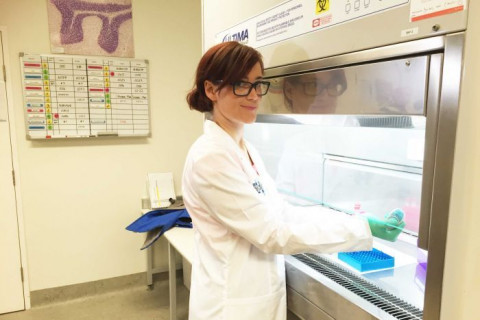
Australia's first autism biobank will open in Brisbane on Monday, paving the way for what researchers hope will lead to an earlier and more accurate diagnosis of the disorder.
Nearly 5,000 samples of blood, hair and urine, taken from autistic children, their parents and a control group, will be stored in freezers and could one day deliver the answers to what causes the condition.
Autism Queensland said parents typically raised concerns when their child was 12 months old, however in general they did not get diagnosed until at least two years later.
The organisation's children's services manager Pam Macrossan said there was a substantial gap between the age at which a reliable and accurate diagnosis of autism was possible and the average age that children were currently diagnosed.
"Early intervention ... works with families who are with their child in every waking moment and teaches parents how to build that social interaction and ... build that social brain and reduce that cascading effect of autism," she said.
"If there was a blood test or there was some sort of pathology or genetic testing that would diagnose children you would be able to start intervention very early."
A recent report found improved long-term outcomes associated with early behavioural intervention for autism, commencing at three years of age, reduces the support costs to society by approximately $1.6 million over a lifetime, Autism Queensland said.
The samples will be collected across Australia and sent to the tissue bank at the Wesley Hospital.